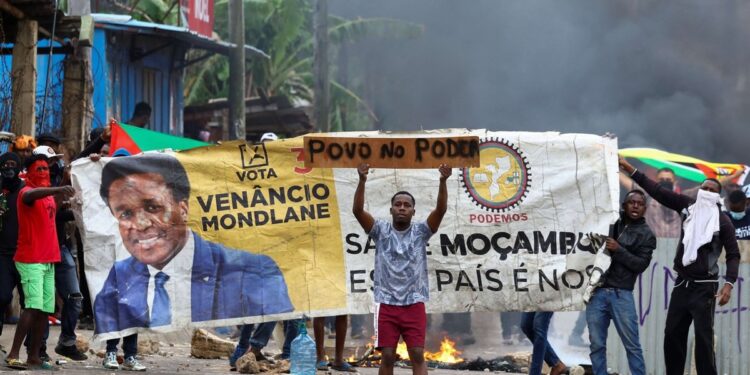The Political Landscape of Namibia: Anticipated Change Amidst Uncertainty
As the citizens of Namibia prepare to vote in the nation’s seventh electoral event since gaining independence in 1990, a significant portion of the populace expresses discontent with the direction their country is heading. A prevalent concern is the high unemployment rate that continues to haunt many families. Compounding these worries are alarming corruption scandals that have eroded faith in governmental institutions, reflecting sentiments common across various nations in Southern Africa. This context sets stage for Namibia’s elections to potentially mirror a wider global trend of shifting public approval away from established political parties.
Shifting Dynamics and Historical Precedents
The ruling South West Africa People’s Organization (SWAPO) appears to be facing mounting pressure as unease grows among voters. A glance at regional politics reveals striking examples; for instance, last month saw voters in Botswana decisively reject the long-standing Botswana Democratic Party, signaling a widespread desire for transformative leadership. Additionally, in May’s elections, South African incumbents from the African National Congress struggled to secure a majority, compelling President Ramaphosa into an uneasy coalition government under a misnomer known as a Government of National Unity—an attempt at damage control rather than true representation.
A Glimpse into Dissenting Neighbors
Contrastingly, neighboring countries like Zimbabwe and Mozambique illustrate darker narratives where ruling entities resist popular demands through intimidation tactics and electoral manipulation. In Zimbabwe’s recent electoral cycle, irregularities were so severe that even typically compliant observers from regional bodies couldn’t overlook them. The ZANU-PF party remains entrenched despite allegations of widespread persecution against dissenters and discussions about extending President Mnangagwa’s term.
In Mozambique as well, dissatisfaction has emerged following last month’s disputed elections marred by evident fraud and subsequent violence directed towards protesters. Reports indicate that official confirmations surrounding results—claiming more than 70 percent support for FRELIMO’s candidate—have been met with skepticism throughout various communities. Human Rights Watch documented tragic instances where state forces’ violent responses led to casualties among innocent civilians—including children—which further inflamed public outrage manifesting through peaceful protests such as banging pots and pans against windows.
Navigating Crisis: The Response from Leadership
Pushed toward seeking resolutions amidst unrest, current President Nyusi has proposed engaging all presidential candidates in dialogue—a move perceived by many as an approach aiming to consolidate FRELIMO’s narrative rather than genuinely address grievances. Long-standing opposition group RENAMO has been criticized so severely due to co-optation practices that locals mockingly refer to it as “FRENAMO.” Yet this election cycle has ushered forth emerging political players such as Venancio Mondlane from PODEMOS party who challenges established protocols by asserting he rightfully won power.
Despite threats encroaching upon his safety—including alleged attempts on his life post-election—and asset freezes meant to stifle his influence; Mondlane persists through social media channels advocating for transparency regarding candidate meetings with Nyusi while calling attention to unjust detentions targeting demonstrators striving for their constitutional rights.
Concluding Thoughts: The Path Forward for Namibian Democracy
The stark divide between FRELIMO’s governance style and constituents’ aspirations raises concerns about whether changes will materialize within such parties moving forward or if resistance will continue unabated despite popular demand for reform.
While SWAPO may not experience outright defeat like its counterparts elsewhere—for now—these circumstances emphasize an urgent need necessary adjustments reflective not solely on officials’ ambitions but increasingly responsive policies favoring ordinary citizens’ welfare instead.















